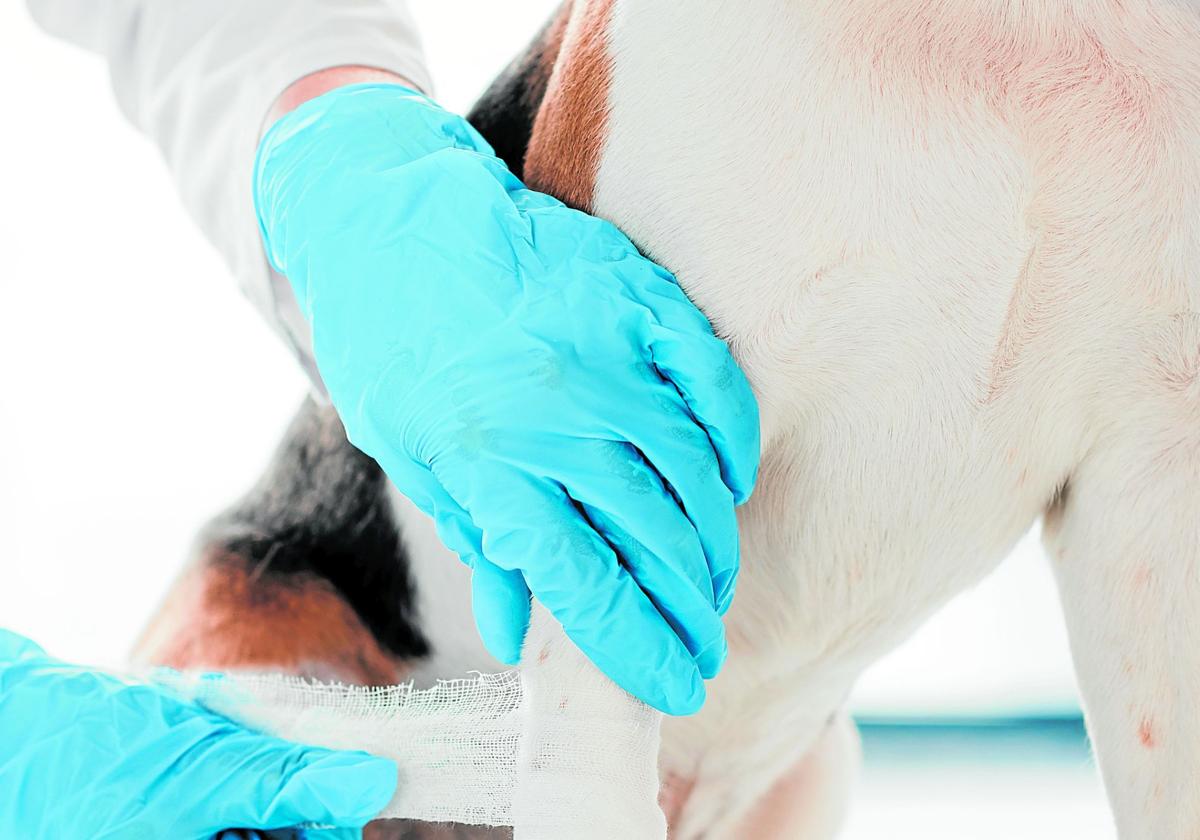Vets - a booming but uncertain sector due to new legislation in Spain
Professionals highlight the 'good intentions' of the animal welfare law and how it has ordered the management of cat colonies or registers, but warn of gaps in aspects such as exotic species, which, they fear, could affect their activity
The Spanish veterinary business confederation (Ceve), headed in Andalucía by Jesús Gutiérrez Aragón, periodically prepares a macro socio-economic study that reflects the indicators of this sector.
The latest available such report (from 2023) sheds some light on the size of this activity and its importance: the turnover has increased by 116.32% since 2012; 178.05% in the field of pets.
As far as personnel expenses are concerned, they have risen by 231.22%. In the absence of a new detailed analysis, the trend remains the same, says the head of Ceve.
Juan Antonio de Luque, head of the Malaga's veterinary association - the largest in the region, with 1,200 members - supports this perception. He comments on the two factors that favour this profession: greater respect for animals, not just pets, and an increase in the acquisition of the latter, as companions in many homes.
But it's not all good news. Veterinarians are not quite happy with the regulatory framework in which they operate - the Animal Welfare Act, which has been in force since September 2023.
At the moment, the effects of the legal change are not yet visible in the books, as the law is still in its initial stage, but its impact is being felt within the profession. In other words, in the long run, if some of its aspects are not specified, the regulation could be a setback for these businesses.
"It has been legislated with dogs, cats and ferrets in mind, in line with the EU, but it is very open for the rest of the species, which are all considered exotic," says Gutiérrez Aragón.
Half a million dogs and cats registered in the province of Malaga
In Malaga, on 1 January 2024, there were 499,172 registered dogs and cats, according to data from the Andalusian veterinary associations and the Andalusian institute of statistics and cartography. According to the latest figures available, the province has 510,941 small animals - 415,980 dogs, of which 18,406 are potentially dangerous; 91,756 felines; 1,931 ferrets and 1,274 other animals.
"It is not the same to think of those who dedicate their free time to animals as a hobby as it is to think of us, who look after their health," says Gutiérrez Aragón.
In short, there are gaps that need to be filled with the implementation of about half a dozen regulations. For example, a "positive list" still has to be created in which animals that can be domesticated will be included. In the meantime, a golden eagle and a hamster are in the same category.
"These doubts are brought to us by our clients," says Gutiérrez Aragón, calling on legislators to act quickly, because of the risk of "illicit trade" and a drop in income for vets who specialise in the treatment of animals that are not cats and dogs.
Another unknown concerns future examinations of the capacity to care for an animal a person has and the criteria that will be applied to those who already have one at home.
These are uncertainties in a sector, which consists of self-employed workers or companies with four or five workers, which implies another risk: the arrival of large investment groups better able to circumvent a possible crisis, which creates competition.
Support to municipalities
The college of veterinarians emphasises that the entry into force of the law "has meant that many local councils that were not up to date with their obligations to register pets are now up to date" - a responsibility that was already established more than 20 years ago.
However, the president of the association believes that the legislation does not have funding to support this work which, in practice, means that local administrations have to take responsibility for any species. As a solution to this problem, the college has signed agreements with many local governments for the creation and development of pet censuses.
In many cases, this collaboration also provides support in the management of cat colonies. This is the case in Torremolinos, where the college of veterinarians guarantees compliance with all the protocols for the care of stray cats and assumes costs such as microchips for their identification, rabies vaccinations or deworming against echinococcosis. As for the distribution of clinical or medical care, it is handled by the veterinary centres participating in these agreements.
Agreements
Besides Torremolinos, there are agreements to manage the pet registers with Frigiliana, Alfarnatejo, Fuengirola, Rincón de la Victoria, Moclinejo, Marbella, Benalmádena, Ronda, Antequera, Malaga, El Borge, Cártama, Nerja, El Burgo, Almáchar, Periana, Fuente de Piedra, Benamargosa, Casabermeja, Mijas, La Viñuela, Jimera de Líbar, Sayalonga, Torrox and Monda.
The different sizes of these municipalities give an idea of the need for experts to assume the new obligations. From the perspective of the professionals, if the matter is difficult for a public administration, it can be even more difficult for private individuals who do not know exactly to what extent they have to comply with new legislative measures.
"We must not forget that the health of animals is the health of people, because of the risk of zoonosis," says the veterinary president.

